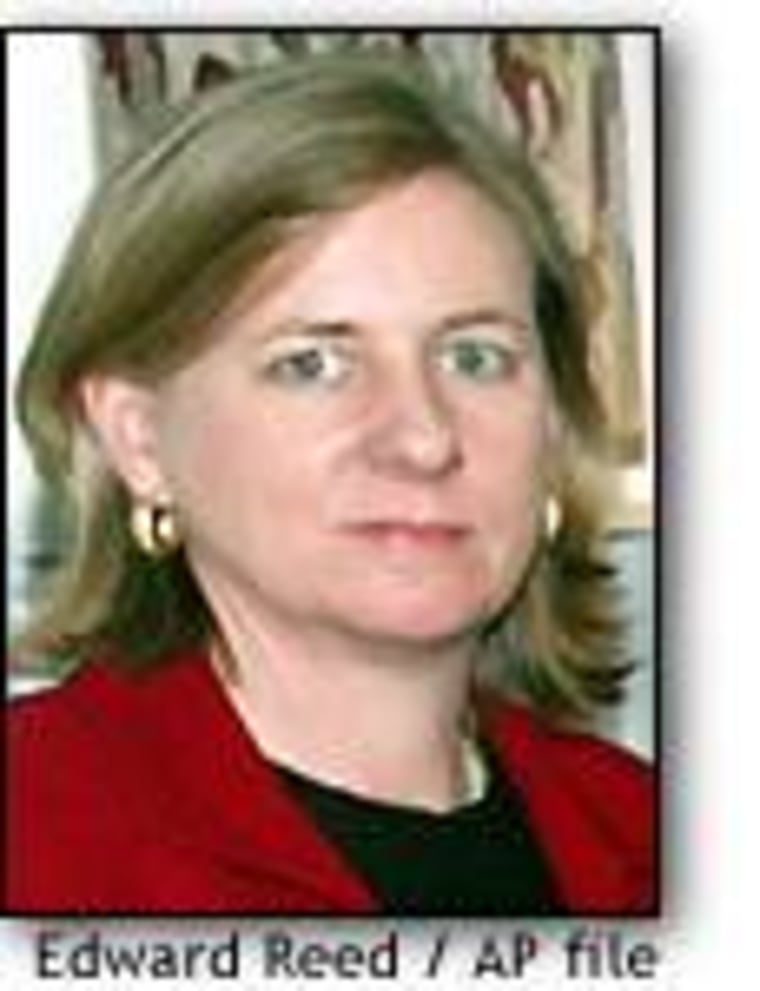Bios of MSNBC analysts who are diplomatic experts and former administration officials:
DR. SUE BAILEY

With vast experience in public health, academia, military medical strategy, and regulatory and public policy administration, Dr. Sue Bailey has been at the forefront of many significant challenges faced by America. An expert on national security and public health matters, she is one of the most frequently interviewed and often quoted experts on the bio-terrorism threat. Dr. Bailey served as assistant secretary of Defense, where she headed the $17 billion military medical system coordinating the care for 8 million beneficiaries. Her responsibilities included health protection of our military forces from combat casualties, disease, environmental hazards, and biochemical warfare.
AMBASSADOR HUME HORAN
Hume Horan is considered a leading Arabist by the State Department, and is highly regarded by his peers, who elected him as president of the Foreign Service Association.
He served as a Senior Inspector the Department of State. He was also Ambassador to the Ivory Coast (1992-95), Saudi Arabia (1987-88), Sudan (1983-86), and the Camaroons (1980-83), as well as a principal deputy assistant secretary for the Bureau of Counselor Affairs in 1978-1980.
He has been a visiting professor at Hankuk University of Foreign Studies, Seoul, Korea. He chaired the African Studies program at the Foreign Service Institute, Department of State, and served as Adjunct Professor at Howard University. He is fluent in Arabic, French, German, and Spanish. Ambassador Horan received his undergraduate degree at Harvard in 1956 and a Master’s in 1963.
LAWRENCE KORB
He is vice president of the Council on Foreign Relations and former assistant Secretary of Defense in the Reagan administration, from 1981-1985 , and holds the Department of Defense Medal for Distinguished Public Service. He was a senior fellow at the Brookings Institution (1988-98), and a director of the Center for Public Policy Education.
He earned his doctorate at the State University of New York, and he has served on the faculty of the Naval War College. He was also the dean of the Graduate School of Public and International Affairs at the University of Pittsburgh.
He is the author of “American National Security: Policy and Process” (1993), “The Fall and Rise of the Pentagon” (1979), and “The Joint Chiefs of Staff: The First Twenty-five Years” (1976); his recent books include “Future Visions for U.S. Defense Policy ”(2000, with coauthor John Hillen) and “A Realistic Defense Budget for the New Millennium” (2000). He is a retired captain in the U.S. Naval Reserve.
AMBASSADOR EDWARD PECK
Ambassador Peck served as an American diplomat for 32 years and speaks four languages: Swedish, Arabic, French and Spanish. He was the chief of mission in Iraq from 1977 to 1980. He was an also an Embassy officer in Sweden, Morocco, Tunisia, Algeria, and Egypt and a Chief of Mission in Mauritania.
His domestic assignments included Deputy Director of the Cabinet Task Force on Terrorism at the White House, Deputy Coordinator for Covert Intelligence Programs and Special Assistant to the Under Secretary for Political Affairs at the State Department, Liaison Officer to the Joint Chiefs of Staff and a Fellow at the Institute for Higher Defense Studies at the Pentagon.
Ambassador Peck retired to become Executive Secretary of the American Academy of Diplomacy in Washington, D.C., and was later named Chairman of Political Tradecraft programs at the National Foreign Affairs Training Center in Northern Virginia. He is a member of the Washington Institute of Foreign Affairs, a Distinguished Visitor at the National War College, and a Woodrow Wilson Foundation Visiting Fellow. The ambassador also serves on the Board of Directors of Americans for Middle East Understanding.
A former paratrooper in the U.S. Army, Ambassador Peck rose from private to Captain. He earned a Bachelor of Science degree from UCLA, and an M.B.A from George Washington University.
DAVID PHILLIPS
David L. Phillips is a senior associate in the CSIS Preventive Diplomacy Program. He has held numerous positions with international organizations, including senior adviser for humanitarian advocacy at the United Nations and senior adviser for democracy and regional stability at the Department of State. Currently, Phillips is a scholar in residence and director of the Conflict Prevention and Peacebuilding Program at American University’s Center for Global Peace. Phillips has done extensive research on the Balkan region and has published articles about the Balkans and other topics in the New York Times, the Christian Science Monitor, the Asian Wall Street Journal and European Wall Street Journal, the International Herald Tribune, and other major newspapers.
AMB. NANCY SODERBERG

With nearly twenty years of experience in the formation of U.S. foreign policy, Soderberg has held high-level posts in the White House, at the United Nations, and in the US Congress.
From 1993-97, Soderberg served as the third ranking official of the National Security Council at the White House, including as Deputy Assistant to the President for National Security Affairs. From 1997 to 2001, Soderberg served as Alternate Representative to the United Nations as a Presidential Appointee, with the rank of Ambassador. She has also worked as the Senior Foreign Policy Advisor to Senator Edward M. Kennedy. In April 2001, Soderberg joined the International Crisis Group (ICG) as Vice President and Director of the New York Office. ICG, based in Brussels, is an international non-profit organization, which advocates policies to prevent and contain conflict. She has a Masters of Science Degree from Georgetown University’s School of Foreign Service and a Bachelor of Arts Degree from Vanderbilt University.
RAYMOND TANTER
Raymond Tanter is currently a member of the Council on Foreign Relations. From 1981 to 1982, Tanter served on the National Security Council staff and was personal representative of the secretary of defense to the 1983-1984 arms control talks held in Madrid, Helsinki, Stockholm, and Vienna.
Dr. Tanter received his doctorate from Indiana University and has taught at Northwestern, Stanford, and the Hebrew University of Jerusalem. The recipient of a Fulbright scholarship to the University of Amsterdam, he has served as a fellow at both the Hoover Institution and the Woodrow Wilson International Center.
He is a professor of political science at the University of Michigan, is an adjunct scholar of The Washington Institute, researching U.S. policy options toward Iran.
Dr. Tanter’s recent publications include “Classifying Evil: Bush Administration Rhetoric and Policy toward Rogue Regimes” (The Washington Institute, 2003), “Rogue Regimes: Terrorism and Proliferation” (St. Martin’s, 1999), and “Balancing in the Balkans,” coauthored with John Psarouthakis (New York: St. Martin’s Press, 1999).
